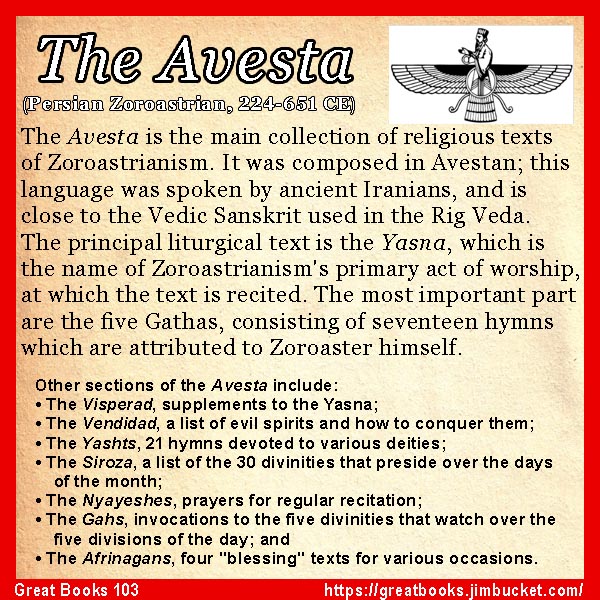THE AVESTA (Persian Zoroastrian, 224-651 CE)
The Avesta is the main collection of religious texts of Zoroastrianism. It was composed in Avestan; this language was spoken by ancient Iranians, and is close to the Vedic Sanskrit used in the Rig Veda. The principal liturgical text is the Yasna, which is the name of Zoroastrianism's primary act of worship, at which the text is recited. The most important part are the five Gathas, consisting of seventeen hymns which are attributed to Zoroaster himself.
Other sections of the Avesta include:
- The Visperad, supplements to the Yasna;
- The Vendidad, a list of evil spirits and how to conquer them;
- The Yashts, 21 hymns devoted to various deities;
- The Siroza, a list of the 30 divinities that preside over the days of the month;
- The Nyayeshes, prayers for regular recitation;
- The Gahs, invocations to the five divinities that watch over the five divisions of the day; and
- The Afrinagans, four "blessing" texts for various occasions.



Please leave a comment - I can't WAIT to hear from you!